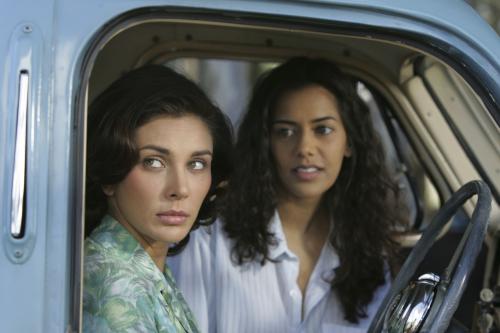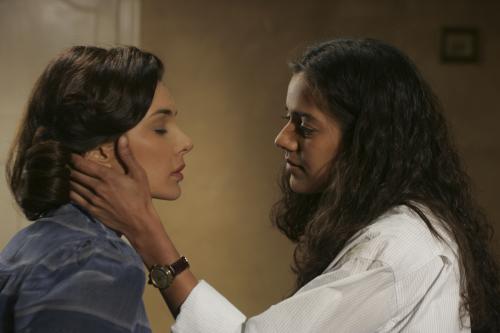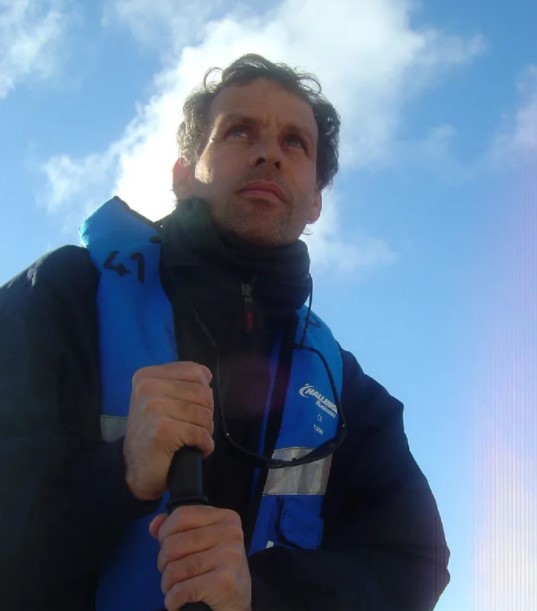I Can’t Think Straight and The World Unseen

The latest updates, reviews and unmissable series to watch and more!
You are now subscribed
Your newsletter sign-up was successful
Want to add more newsletters?

ONCE A WEEK
What to Watch
Get all the latest TV news and movie reviews, streaming recommendations and exclusive interviews sent directly to your inbox each week in a newsletter put together by our experts just for you.

ONCE A WEEK
What to Watch Soapbox
Sign up to our new soap newsletter to get all the latest news, spoilers and gossip from the biggest US soaps sent straight to your inbox… so you never miss a moment of the drama!
Writer-director Shamim Sarif has two movies on release in British cinemas today. Both films draw on her own experiences and heritage, both are based on her own novels, and both star Lisa Ray and Sheetal Sheth as young women struggling to overcome family and social prejudice, and their own fears, after they fall in love.
The two films are very different in tone and setting, however. I Can’t Think Straight, Sarif’s directing debut, is a romantic comedy set in present-day London and Jordan, while The World Unseen is a period drama that takes place in 1950s South Africa.

In I Can’t Think Straight, Ray plays Tala, a flighty young Jordanian of Palestinian origin who has a history of jilting her fiancés, much to the dismay of her wealthy Christian family. She has just got engaged to fiancé number four when the film opens, but don’t count on her making it to the altar.
Why the cold feet? Well, the viewer will have a pretty good inkling by the time she encounters, in London, Sheth’s Leyla, a shy British-Indian Muslim with lukewarm feelings about her own boyfriend. The rapport between the two is instant and slowly blossoms into love, but they must both find the confidence to come out to their families before they stand a chance of happiness.

Ray and Sheth’s roles are reversed, as it were, in The World Unseen. Both play members of South Africa’s Indian community at a time when Indians occupied an uneasy position between white and black races, and between privilege and oppression. Sheth plays the free-spirited, trouser-wearing Amina, who runs a lively café for Indians and ‘Coloureds’ in 1952 Cape Town and risks falling foul of the era’s newly passed apartheid laws.
Ray’s reticent Miriam, by contrast, is the subservient wife of a chauvinistic, philandering husband and mother to two young children (with a third on the way). Once again, significant glances are exchanged when the women first meet, and, again, they kick against the pricks of prejudice on the way to self-fulfilment.

Sarif’s brace of films have their flaws. The writing and direction in I Can’t Think Straight is often clumsy and there are wobbly performances from some of the supporting cast. At times, too, Sarif strains a little too hard after humour. A would-be running gag features EastEnder Nina Wadia, in a rather pointless cameo, as a maid who spits into the drinks she proffers her snooty employer, Tala’s mother, played with magnificent hauteur by Antonia Frering.
The latest updates, reviews and unmissable series to watch and more!
Sarif’s direction is much more assured in The World Unseen, and the film’s more serious mood much more consistently maintained than I Can’t Think Straight’s rom-com levity. But Ray (best known for her appearance in Deepa Mehta’s Water) and Sheth (who appeared alongside Albert Brooks in Looking for Comedy in the Muslim World) have engaging screen presences and real chemistry in both movies.
And Sarif deserves praise for the way she explores how questions of prejudice and identity are even more difficult to negotiate in communities that are themselves subject to intolerance. Interestingly, fathers in both movies are much more liberal and accepting than you might expect, and it is women (mothers in I Can’t Think Straight and a grandmother in The World Unseen) who are the inflexible upholders of the status quo.
General release from 3rd April
A film critic for over 25 years, Jason admits the job can occasionally be glamorous – sitting on a film festival jury in Portugal; hanging out with Baz Luhrmann at the Chateau Marmont; chatting with Sigourney Weaver about The Archers – but he mostly spends his time in darkened rooms watching films. He’s also written theatre and opera reviews, two guide books on Rome, and competed in a race for Yachting World, whose great wheeze it was to send a seasick film critic to write about his time on the ocean waves. But Jason is happiest on dry land with a classic screwball comedy or Hitchcock thriller.


